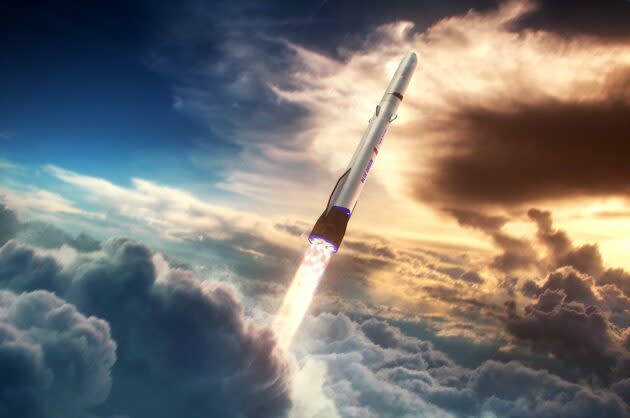Space Force awards $87.5M to Blue Origin, Rocket Lab, SpaceX and ULA for testing

The U.S. Space Force’s Space Systems Command today announced awards totaling $87.5 million to support prototype commercial projects relating to next-generation rocket testing and enhancements to make upper stages more resilient.
The awards were made under the aegis of the National Security Space Launch program using the Space Development Corps’ Space Enterprise Consortium, which facilitates engagement involving the Pentagon space community, industry and academia. The awards include:
$24.35 million to Jeff Bezos’ Blue Origin space venture for cryogenic fluid management on the New Glenn rocket’s second stage.
$24.35 million to Rocket Lab to develop the Neutron rocket’s upper stage.
$14.47 million to SpaceX for rapid throttling and restart testing of the Raptor rocket engine, which is destined for use on SpaceX’s Starship rocket, liquid methane specification development and testing; and combustion stability analysis and testing.
$24.35 million to United Launch Alliance for uplink command and control for the Centaur V upper stage, which will be used with ULA’s Vulcan rocket.
Work on these prototype projects should be completed by 2023. Prototype projects for orbital transfer and maneuver are anticipated to begin in the early part of the 2022 fiscal year, pending congressional budget approval.
“Our launch industry is the envy of the world, and we are excited to partner with industry to advance transformational space access capabilities,” Col. Rob Bongiovi, director of SSC’s Launch Enterprise, said in a news release.
While the prototype projects are conducted, SSC is continuing to develop the next phase of the National Security Space Launch strategy, in support of a Phase 3 procurement competition slated for the 2024 fiscal year. Hundreds of millions of dollars in Phase 2 contracts were assigned to SpaceX and ULA last year after an earlier round of competition.
More from GeekWire:
Stoke Space raises $9.1 million to create a new breed of reusable upper-stage rockets
Despite winning contract, SpaceX sticks with lawsuit against feds and rocket rivals
ULA and SpaceX win shares of future national security launches; Blue Origin loses out
After losing launch competition, Blue Origin delays New Glenn rocket’s first flight until late 2022
